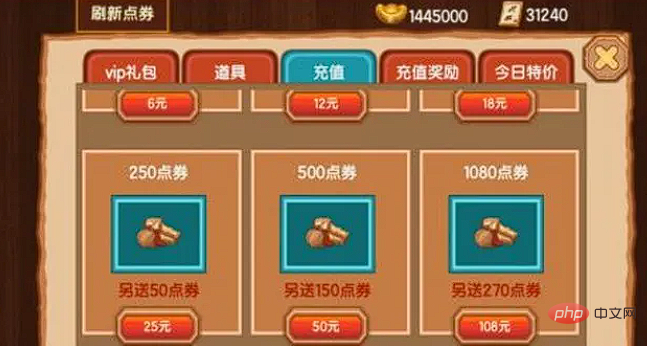virtual digital currency
Virtual currency refers to any currency that is not printed on paper or printed on metal, so it is virtual and only exists in the virtual world. In 2014, the European Banking Authority (EBA) defined virtual currency: "Virtual currency is a digital expression of value that is not issued by a central bank or a public authority, nor is it necessarily linked to a legal currency, but is A natural person or legal person accepts it as a means of payment and can transfer, store or trade electronically.”

Virtual currency refers to any currency that is not printed on paper or printed on metal, so it is virtual and only exists in the virtual world.
In 2014, the European Banking Authority (EBA) defined virtual currency: “Virtual currency is a digital expression of value that is not issued by a central bank or public authority and is not necessarily associated with a certain It is pegged to legal tender but is accepted by natural or legal persons as a means of payment and can be transferred, stored or traded electronically.”
Therefore, Tencent’s Q Coin is a centralized virtual currency: issued and managed by Tencent itself. It can be recharged through WeChat payment, bank cards, etc., and purchased at the ratio of 1Q Coin/RMB. It can only be used To purchase products (such as game props) and services on the QQ platform, they can only be circulated in one direction, that is, they cannot be exchanged for cash or transferred.

Similar to this, there are coupons in online games, fish balls on live broadcast platforms, and golden beans on e-commerce platforms, all of which belong to the category of virtual currencies. Virtual currencies are generally issued by network operators, and the number of issuances is determined by the issuing entity. The credit guarantee comes from the operator's brand credit. The issuance quantity and pricing can be changed at any time, and can only be circulated in one direction in a certain scenario. So to a certain extent, this type of virtual currency is more like a “toy”.
But by definition, virtual currency has the largest scope. Bitcoin can also be regarded as a decentralized virtual currency, but it is essentially different from Q coins and game coupons. For example, it is not subject to any centralized organization. Control, can be used to purchase certain goods and services, and is equivalent to two-way exchange with legal currency, so Bitcoin defines Bitcoin as a cryptocurrency (digital) currency more accurately. Therefore, some people in the domestic securities industry believe that virtual currency only refers to Q coins and does not include crypto (digital) currencies such as Bitcoin.
The above is the detailed content of virtual digital currency. For more information, please follow other related articles on the PHP Chinese website!

Hot AI Tools

Undresser.AI Undress
AI-powered app for creating realistic nude photos

AI Clothes Remover
Online AI tool for removing clothes from photos.

Undress AI Tool
Undress images for free

Clothoff.io
AI clothes remover

Video Face Swap
Swap faces in any video effortlessly with our completely free AI face swap tool!

Hot Article

Hot Tools

Notepad++7.3.1
Easy-to-use and free code editor

SublimeText3 Chinese version
Chinese version, very easy to use

Zend Studio 13.0.1
Powerful PHP integrated development environment

Dreamweaver CS6
Visual web development tools

SublimeText3 Mac version
God-level code editing software (SublimeText3)

Hot Topics
 1387
1387
 52
52
 Gate.io Sesame Open Exchange Tips for Buying and Selling Coins (Guide to Novice)
Apr 21, 2025 am 11:51 AM
Gate.io Sesame Open Exchange Tips for Buying and Selling Coins (Guide to Novice)
Apr 21, 2025 am 11:51 AM
Tips for buying and selling coins on Gate.io include: 1. Make research plans before buying coins to understand the market and risks; 2. Choose trading pairs with high liquidity such as BTC/USDT; 3. Use limit orders to control the buying cost; 4. Pay attention to market trends and analyze price trends; 5. Set stop-profit and stop-loss when selling coins, and manage risks; 6. Use batch selling strategies to balance returns and risks; 7. Combine market sentiment and judge the selling timing; 8. Pay attention to macroeconomic and policy changes, and adjust strategies in a timely manner.
 Ranking of legal platform apps for virtual currency trading
Apr 21, 2025 am 09:27 AM
Ranking of legal platform apps for virtual currency trading
Apr 21, 2025 am 09:27 AM
This article lists the ranking of APPs for legal platforms for virtual currency transactions, emphasizing that compliance is an important consideration for choosing a platform. The article recommends platforms such as Coinbase, Gemini, and Kraken, and reminds investors to study regulatory information and pay attention to security records when making choices. At the same time, the article emphasizes that virtual currency transactions are high-risk and investments should be cautious.
 How to avoid losses after ETH upgrade
Apr 21, 2025 am 10:03 AM
How to avoid losses after ETH upgrade
Apr 21, 2025 am 10:03 AM
After ETH upgrade, novices should adopt the following strategies to avoid losses: 1. Do their homework and understand the basic knowledge and upgrade content of ETH; 2. Control positions, test the waters in small amounts and diversify investment; 3. Make a trading plan, clarify goals and set stop loss points; 4. Profil rationally and avoid emotional decision-making; 5. Choose a formal and reliable trading platform; 6. Consider long-term holding to avoid the impact of short-term fluctuations.
 Top 11 list of Bitcoin Exchange Rate Conversion Global (Updated in 2025)
Apr 21, 2025 am 11:27 AM
Top 11 list of Bitcoin Exchange Rate Conversion Global (Updated in 2025)
Apr 21, 2025 am 11:27 AM
The exchange rate of Bitcoin to currencies of various countries is as follows: 1. USD: at 7:20 on April 9, the exchange rate is 10,152.53. 2. Domestic: at 2:2 on April 9, 1 Bitcoin = 149,688.2954 yuan. 3. Swedish Krona: At 12:30 on April 9, the exchange rate was 758,541.05.
 A list of top 10 global leading virtual currency trading apps in 2025
Apr 21, 2025 pm 12:06 PM
A list of top 10 global leading virtual currency trading apps in 2025
Apr 21, 2025 pm 12:06 PM
The top ten leading virtual currency trading apps in the world in 2025 are: 1. Binance, 2. Gate.io, 3. OKX, 4. Huobi Global, 5. Bybit, 6. Kraken, 7. FTX, 8. KuCoin, 9. Coinbase, 10. Crypto.com.
 Recommended top ten digital currency APPs in the world (authoritative release in 2025)
Apr 21, 2025 pm 12:09 PM
Recommended top ten digital currency APPs in the world (authoritative release in 2025)
Apr 21, 2025 pm 12:09 PM
The world's leading ten digital currency apps include: 1. OKX, 2. Binance, 3. Huobi, 4. Matcha (MXC), 5. Bitget, 6. BitMEX, 7. Pionex, 8. Deribit, 9. Bybit, 10. Kraken. These platforms have their own characteristics in security, transaction services, technical architecture, risk control team, user experience and ecosystem.
 What to do if the USDT transfer address is incorrect? Guide for beginners
Apr 21, 2025 pm 12:12 PM
What to do if the USDT transfer address is incorrect? Guide for beginners
Apr 21, 2025 pm 12:12 PM
After the USDT transfer address is incorrect, first confirm that the transfer has occurred, and then take measures according to the error type. 1. Confirm the transfer: view the transaction history, obtain and query the transaction hash value on the blockchain browser. 2. Take measures: If the address does not exist, wait for the funds to be returned or contact customer service; if it is an invalid address, contact customer service and seek professional help; if it is transferred to someone else, try to contact the payee or seek legal help.
 Keep up with the pace of Coinjie.com: What is the investment prospect of crypto finance and AaaS business
Apr 21, 2025 am 10:42 AM
Keep up with the pace of Coinjie.com: What is the investment prospect of crypto finance and AaaS business
Apr 21, 2025 am 10:42 AM
The investment prospects of crypto finance and AaaS businesses are analyzed as follows: 1. Opportunities of crypto finance include market size growth, gradual clear regulation and expansion of application scenarios, but face market volatility and technical security challenges. 2. The opportunities of AaaS business lie in the promotion of technological innovation, data value mining and rich application scenarios, but the challenges include technical complexity and market acceptance.



